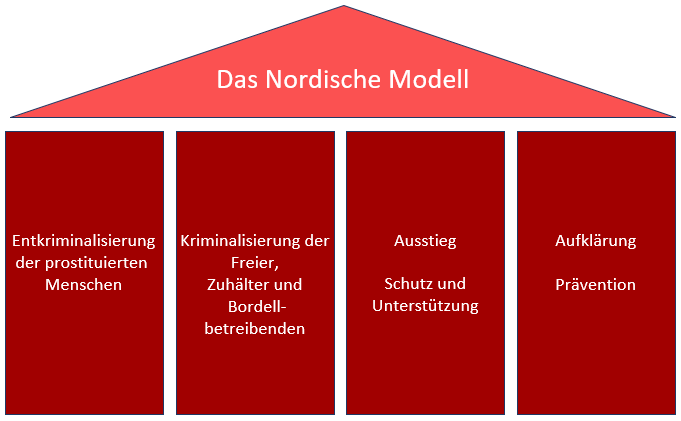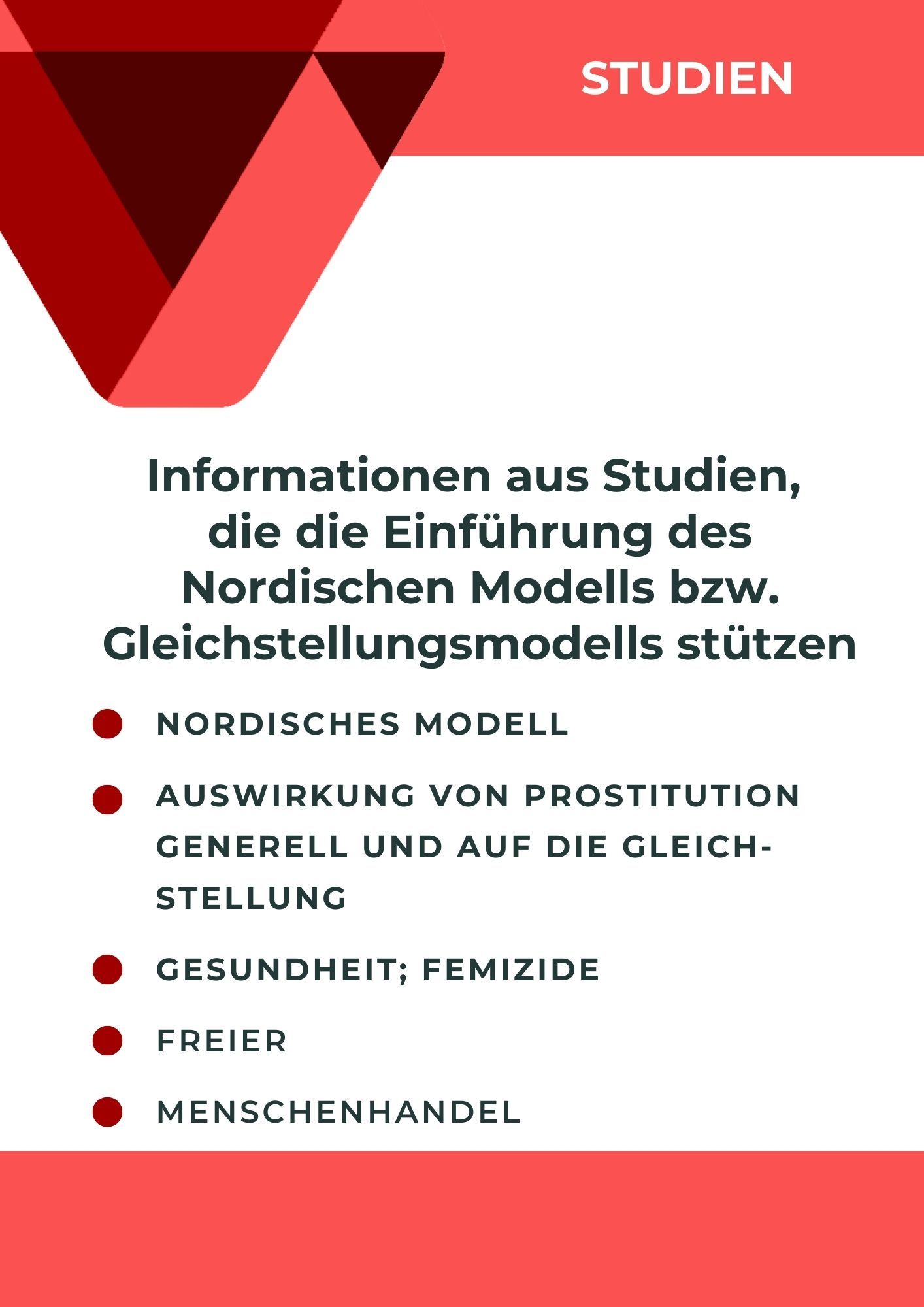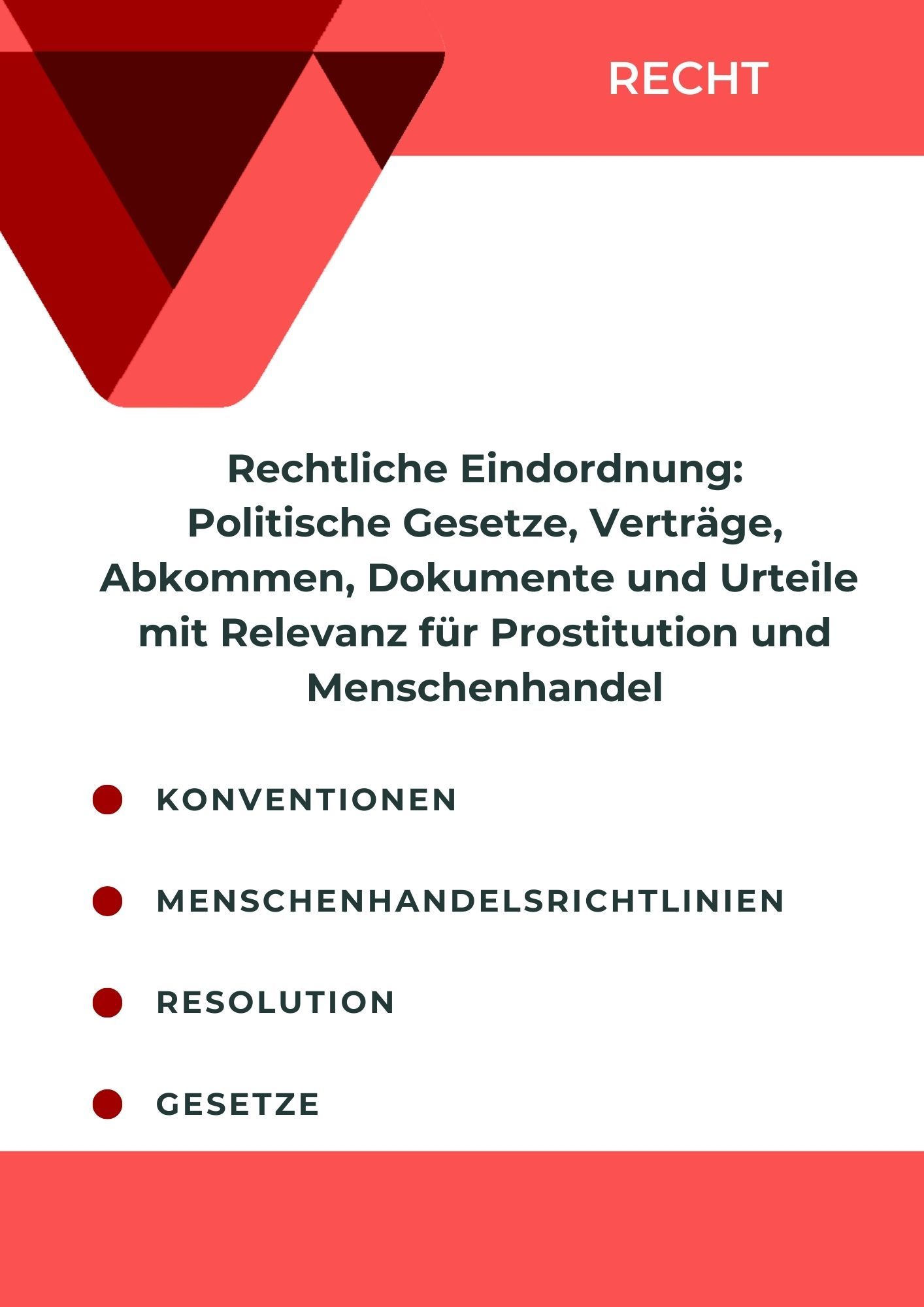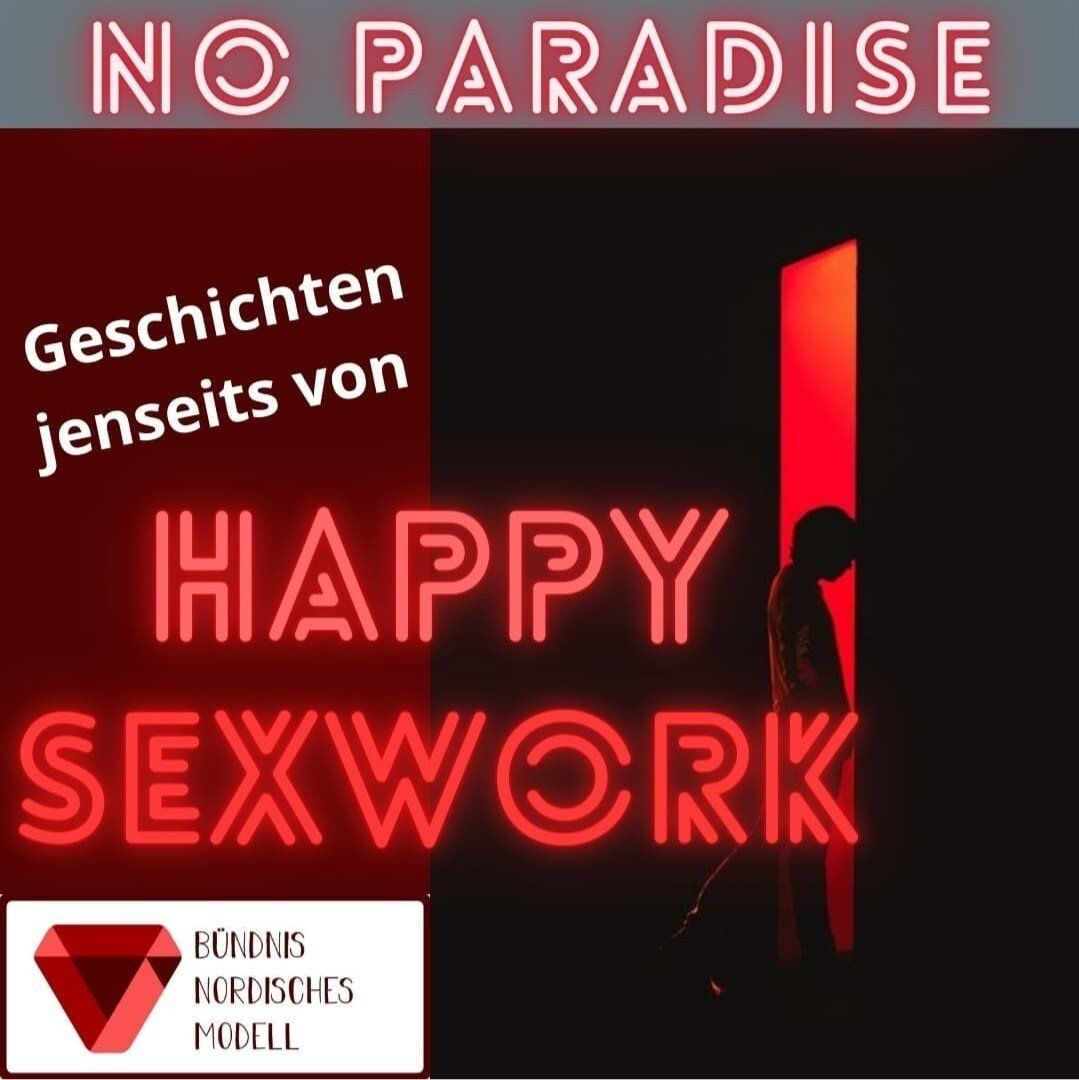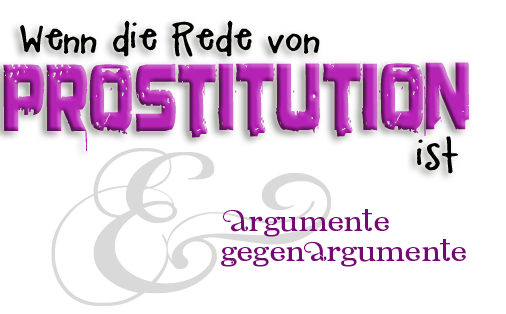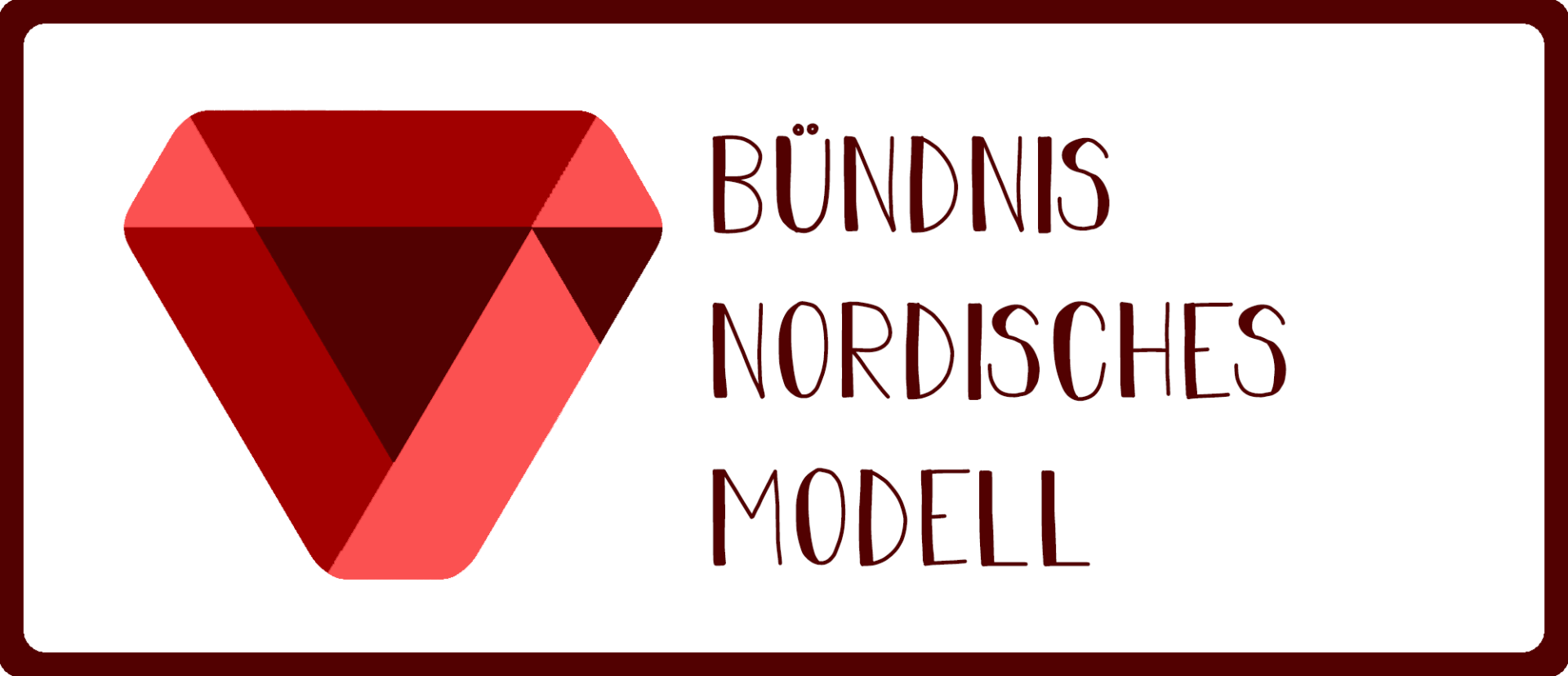Rethinking prostitution policy -
Introduction of the Nordic model
The Alliance Nordic Model is committed to a progressive prostitution policy in the sense of universal human rights in Germany, which is based on the following basic principles:
1. Decriminalize, protect and support all prostituted girls, women and people
2. Combating demand through effective prosecution of clients: The current legal situation is not sufficient. Pursuant to Section 232a Paragraph 6 of the Criminal Code, clients are already making themselves punishable if they buy a forced prostitute for sexual use. They do not or cannot distinguish between coercion and "voluntary".
Prohibition of any third-party profits from prostitution and dismantling of all organized crime structures that lead to forced prostitution and human trafficking for the purpose of sexual exploitation.
3. Exit assistance (nationwide and nationwide), protection and support
4. Education and public relations work through anti-sexist education and prevention with the aim of rethinking society.
The system of prostitution is a violation of human rights
and prevents gender equality.
In 1999, Sweden was the first country to introduce the punishment for clients and the ban on buying sex. In the following years Norway and Iceland (2009) followed and thus the term "Nordic model" was used as a synonym. Canada (2014), Northern Ireland (2015), France (2016), Ireland (2017) and most recently Israel (2018) implemented the punter's punishment in various variations. The Swedish approach did not result in a unified model. However, the "Nordic model" is becoming more and more popular in everyday language.
For more information about the Nordic Model, facts and myths about prostitution and trivia, visit the website of the


